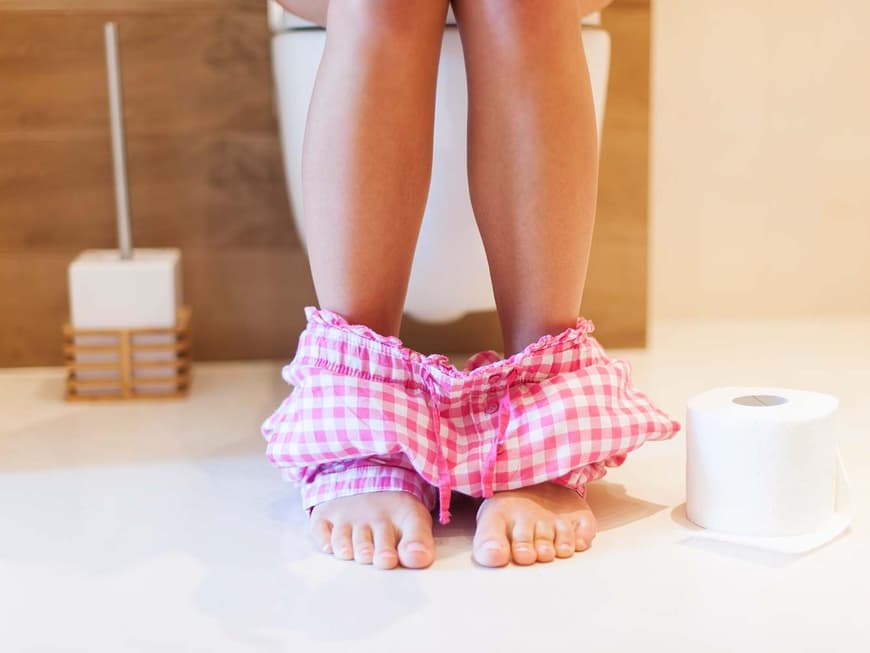
Hard bowel movements - what are they?
The stool is normally rather soft in texture and has a sausage shape - as soon as you feel the need to go to the toilet, the bowel is emptied in more or less one go without much pushing. A hard stool is much drier in its consistency - solid stools are the result, whereby a strong push is usually necessary to empty the bowel. However, a hard stool is not yet constipation - only if you are unable to go to the toilet for several days and notice that your bowels are not moving at all should you consult a doctor.
Also interesting: Why a soft bowel movement is not immediately a cause for concern
Hard bowel movements - the causes
Hard stools are usually caused by diet: people often eat too little fiber, which makes the bowel sluggish. It is important to eat enough whole grain products, fruit and vegetables to keep digestion going. You should also drink enough, the recommended minimum amount is 1.5 liters a day. Older people in particular often drink too little, which leads to sluggish bowels and hard stools. Changes in diet can also lead to hard stools, for example as part of a diet.
A sluggish bowel is also caused by a lack of exercise, for example sitting for hours at work - exercise is therefore very important to keep the bowel moving. Get up more often, every walk counts!
Important: Avoid pushing hard when going to the toilet - this not only promotes hemorrhoids, but can also lead to an anal fissure, a tear in the anus. This is very painful and causes bleeding in the rectum. In severe cases, you can even run the risk of the rectum being pushed out of the anus and protruding outwards by regularly pushing very hard during bowel movements.
Guaranteed to help: Yoga against constipation
Home remedies for hard stools
Psyllium seeds
When the bowel needs a little help, products such as psyllium seeds or psyllium husks have proven their worth. They are a 100 percent natural product and regulate bowel function in the case of both constipation and diarrhea. The effectiveness is based on the mucilage, which binds a lot of water and therefore acts as a swelling agent. This makes the stool smoother. The effect sets in approx. 12 - 24 hours after ingestion.
Plenty of exercise
A lack of exercise can also lead to sluggish bowels - if you spend most of your working day sitting down, you should get some exercise every day. Simple walks can help and burn additional calories.
Sufficient fluids
As already mentioned, a lazy bowel needs fluid, fluid and more fluid. If you tend to forget to drink, you should set yourself a watch and drink a glass of water every hour.
A varied diet
Your diet should include lots of wholegrain products, but you should avoid products made from white flour and lots of sugar. The fiber contained in whole grain products such as rye bread, but also in fruit and vegetables, ensures that the intestines are active.
Raw vegetables
Peppers, cucumbers, carrots - raw food is not only healthy, it also helps your digestion. You should therefore regularly eat a plate of raw vegetables or a variety of salads. Tip: If raw vegetables upset your stomach in the evening, eat raw vegetables at lunchtime.







